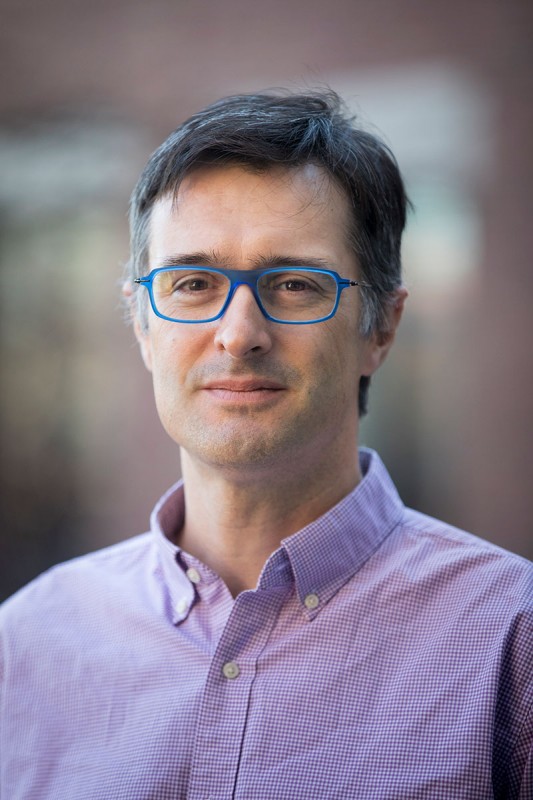The American Council of Learned Societies recently announced that the University of Puget Sound Hispanic studies professor Brendan Lanctot had been awarded a 2019 Frederick Burkhardt Residential Fellowship. The fellowship will allow Lanctot to spend the 2019–20 academic year as a resident researcher at the University of Washington, hosted by the Department of Spanish and Portuguese Studies and the Simpson Center for the Humanities.
Made possible by a grant from The Andrew W. Mellon Foundation, the Burkhardt program supports residential research fellowships for recently tenured faculty members. Fellows benefit from the experience of being in residence at institutions whose resources and scholarly communities are ideally suited to facilitate their projects. Lanctot expects the experience to benefit both his scholarship and teaching at Puget Sound.
“As a professor at a liberal arts institution, I firmly and passionately believe that being an excellent teacher requires a commitment to scholarship,” he says. “That is, to a sustained engagement with what we know—and what we don't.
“This [fellowship] requires me to engage in the same fundamental practices we aspire to cultivate in our students: formulating and answering hard questions, examining received ideas and our own ignorance, and trying to craft a good story out of seemingly endless information.”
Lanctot will spend his year at the University of Washington focusing full time on his current research project, titled Specters of the Popular in 19th-Century Latin American Visual Culture.
“The basic question I'm asking in the project is ‘How did the ways people see and were seen change over the course of the 19th century in Latin America?’” Lanctot explains. “More specifically, how did new visual technologies, such as lithography, photography, and early cinema, help form and inform pueblos? (or people), as Latin American societies struggled to establish political systems based on popular sovereignty?
“My working hypothesis is that a particular way of relating popular subjects to state power emerges in this process, anticipating what we've come to refer to as ‘populism,’” Lanctot continues. “I am compelled to study visual culture in relation to populism, in large part because of how frequently contemporary scholarship uses that word to talk about phenomena in the 19th century, even though the word didn't exist yet.”
Lanctot is the second consecutive Puget Sound professor to be awarded a Burkhardt Fellowship. Sociology professor Jennifer Utrata is currently completing a 2018–19 fellowship at the Center for Studies in Demography and Ecology at the University of Washington. Her project is titled Carework’s “Third Shift”: Grandparental Support and Family Inequality.
